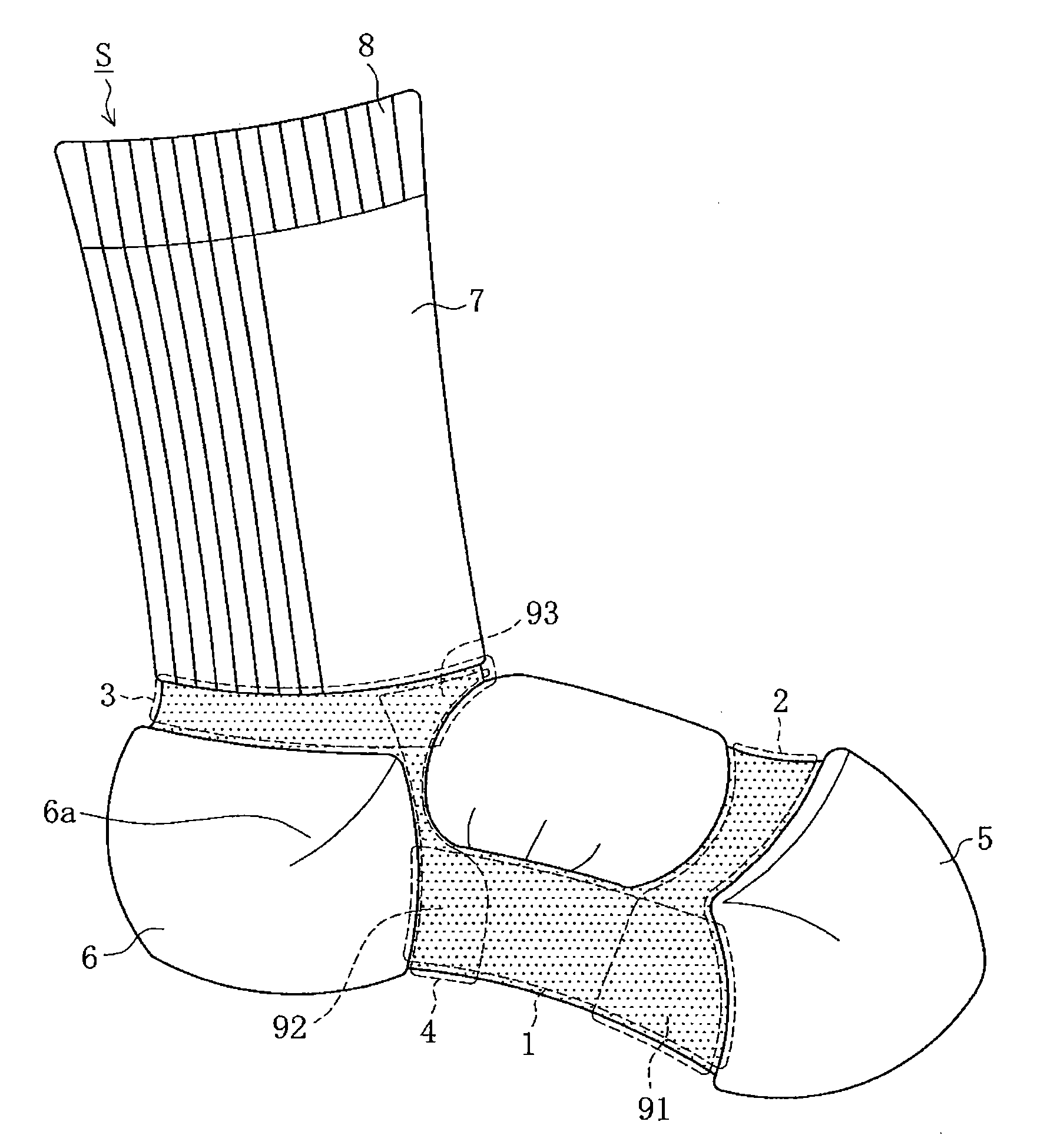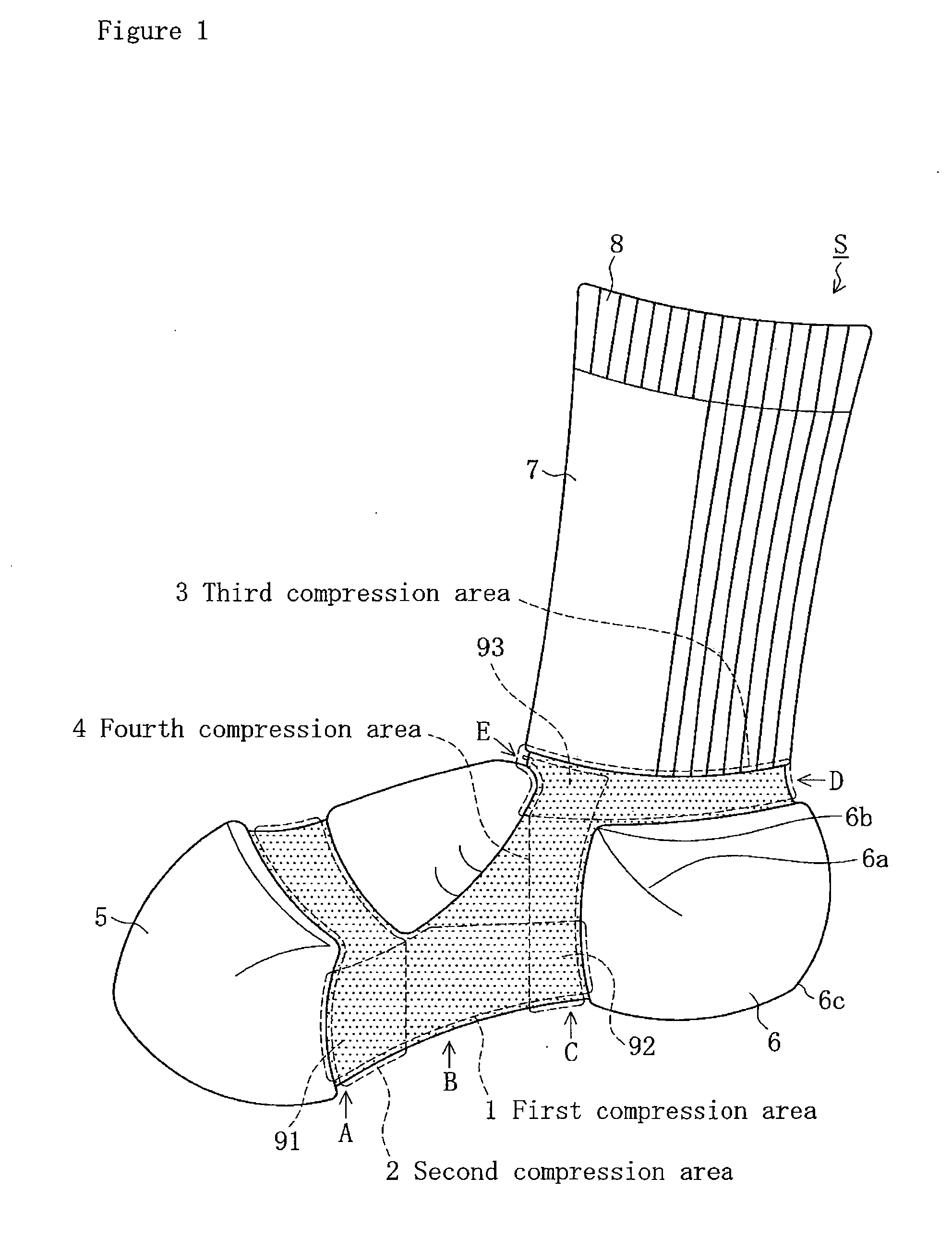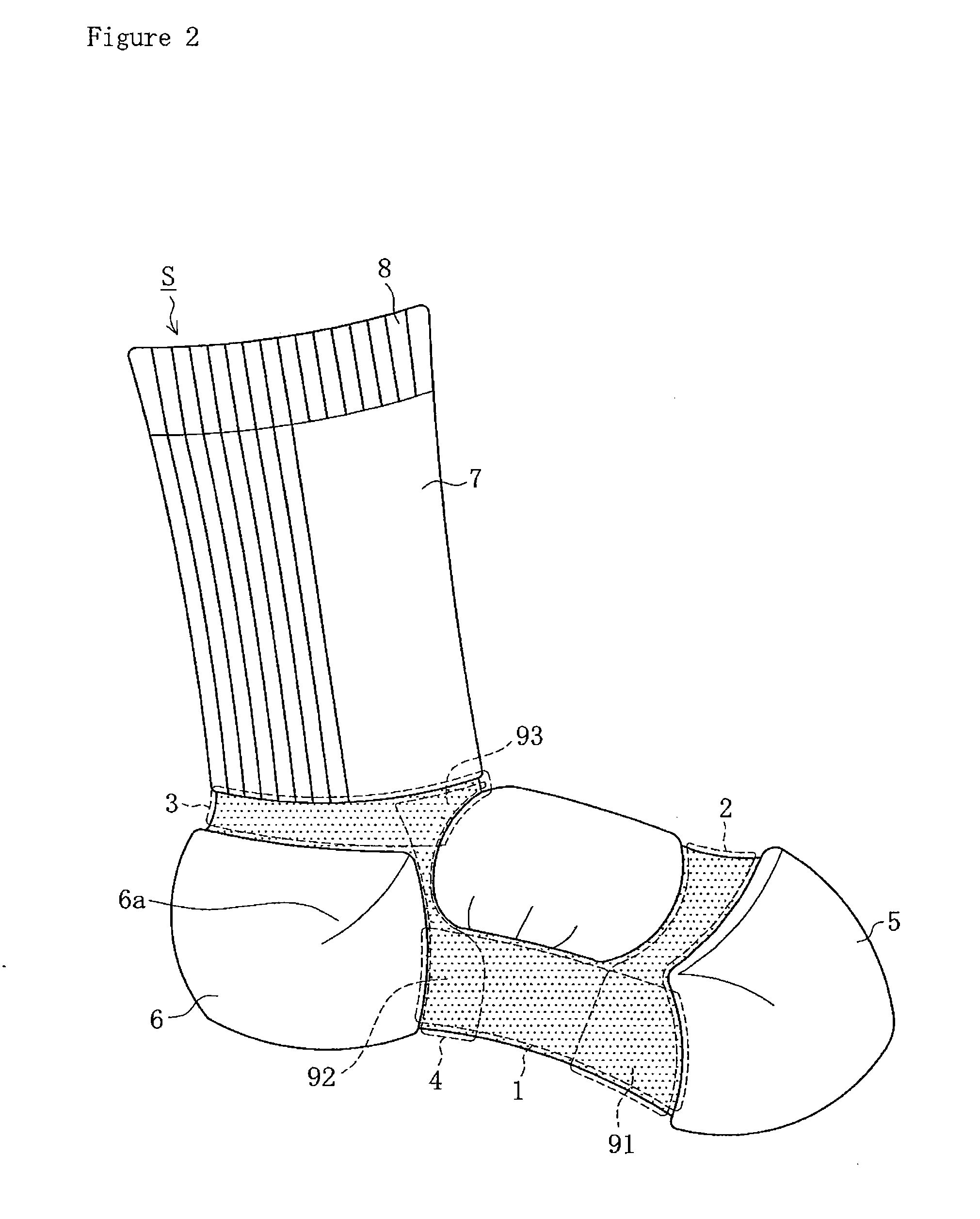Sock
a technology of socks and soles, applied in the field of socks, can solve the problems of inability to achieve a sufficient spring-like function, body to feel languid, feet to tire,
- Summary
- Abstract
- Description
- Claims
- Application Information
AI Technical Summary
Benefits of technology
Problems solved by technology
Method used
Image
Examples
example
[0057]The sock of the present invention is described in further detail below based on the following example. FIG. 1 is a lateral view of a sock of an embodiment of the present invention for the right foot as seen from the side of the big toe. FIG. 2 is a lateral view of the same sock as seen from the side of the little toe. FIG. 3 is a view of the same sock as seen from the side of the sole portion. FIG. 4 is a view of the same sock as seen from the side of the instep portion. FIG. 5 is a drawing illustrating the direction of compression for the first through the fourth compression areas.
[0058]As shown in FIG. 1, a sock S of this example is provided with a first compression area 1 which raises the compressive force in a wale direction from a position A behind the toe area of a sole portion of the sock to a position C which includes the boundary between an arch portion B and a heel portion 6, a second compression area 2 provided on the periphery to raise the compressive force in a co...
PUM
 Login to View More
Login to View More Abstract
Description
Claims
Application Information
 Login to View More
Login to View More - R&D
- Intellectual Property
- Life Sciences
- Materials
- Tech Scout
- Unparalleled Data Quality
- Higher Quality Content
- 60% Fewer Hallucinations
Browse by: Latest US Patents, China's latest patents, Technical Efficacy Thesaurus, Application Domain, Technology Topic, Popular Technical Reports.
© 2025 PatSnap. All rights reserved.Legal|Privacy policy|Modern Slavery Act Transparency Statement|Sitemap|About US| Contact US: help@patsnap.com



